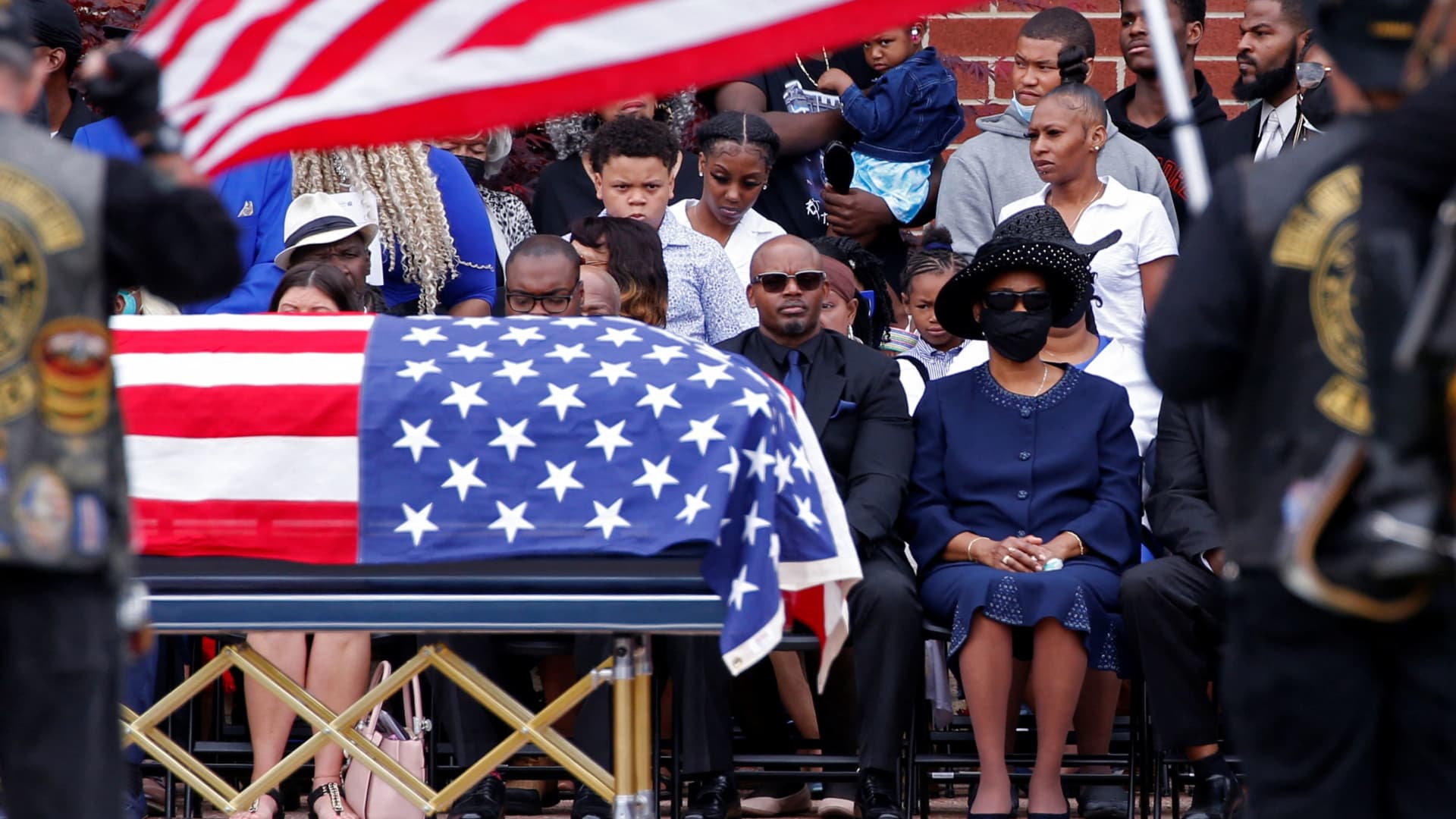
Senate Republicans on Thursday blocked a domestic terrorism bill the House passed earlier this month in response to a mass shooting in Buffalo, New York.
The racist rampage by an 18-year-old left 10 people dead in a predominantly Black neighborhood in Buffalo. The Democratic-held House responded days later with a measure that would specifically try to reduce racist violence.
But Republicans, who argued that there are plenty of laws to prosecute domestic terrorism and opposed giving more power to federal law enforcement, prevented the bill’s progress. It failed to advance in a 47-47 vote, short of the 60 necessary to break a filibuster in the chamber.
The legislation lawmakers considered Thursday, known as the Domestic Terrorism Prevention Act, would create three offices in the F.B.I, as well as in the Departments of Justice and Homeland Security, to track and examine cases of potential domestic terrorism.
Senate Majority Leader Chuck Schumer, a Democrat from New York, pleaded with his Republican colleagues on Wednesday to consider the bill in the wake of May’s second mass shooting carried out by a teenager: The killing of 19 children and two teachers at an elementary school in Uvalde, Texas.
But without the necessary 60 votes to circumvent a GOP filibuster, the domestic terrorism bill has little chance of becoming law.
While Democrats also hope to craft separate legislation that would tighten gun background checks or so-called red flag laws, the bill before the Senate on Thursday would have responded specifically to the threat of racist killings.
A spate of mass shootings in recent years, including in Buffalo, Atlanta, and El Paso, Texas, have targeted a specific racial minority group.
The now-doomed legislation would direct the new government offices to document and report on domestic terrorism with a special focus on white supremacy and neo-Nazi groups, and force the Pentagon and federal law enforcement to expel white supremacists from their payrolls.
Republicans in the House of Representatives, who opposed the bill when the chamber passed it on May 18, said the domestic terrorism bill would give the Justice Department and federal law enforcement too much power.
U.S. Rep. Chip Roy, a Texas Republican whose district includes parts of the city of Austin, castigated the effort in a speech from the House floor last week.
“We understand what propping up a domestic terrorism unit in this F.B.I., in this administration’s federal government, what it’s all about,” Roy said.
This bill “is about empowerment of the federal bureaucracy to target Americans,” he continued. “It’s questioning that you don’t think right. It’s the extension of thought crimes that is pervasive in this body that will allow the government to target us for what we believe.”
While the chances for the domestic terrorism bill are now all but dashed, a growing number of Senate Republicans appear receptive to conversations about separate gun-control policy after 31 Americans were shot to death in mass shootings in less than one month.
Schumer has thus far leaned on the negotiating powers of Sen. Chris Murphy, a Connecticut Democrat and fierce advocate of stricter gun policy, to determine what measures could win the support of 10 Republicans.
While Murphy’s odds of success are dim given that a solid majority of Republicans would never consider any additional gun regulation, it is possible a handful — including Sens. Pat Toomey, Susan Collins and John Cornyn — could be open to passing red flag laws or strengthening background checks.
Murphy said at a press conference Thursday morning that he will speak with Republicans later in the day.
“We’re going to extend a hand of partnership to those who have been sitting on the sidelines, to those who have chosen to side with the gun lobby. And we’re going to offer them a seat at the table,” Murphy said outside the Capitol.
“Today we will be engaged in bipartisan conversations to try to find a path forward to make our streets safer, to make our schools safer,” he added. “Our belief is that we can find that common ground.”
Cornyn, who spoke from the Senate floor Thursday morning, said he could be open to considering specific gun regulation.
Depending on the results of the Uvalde police investigation, “I’m eager to see whether there are any gaps that might have done something to make this attack less likely. That might have actually even prevented this attack from taking place,” he said.
Toomey, a retiring Republican from Pennsylvania, told CNN on Wednesday that he still supports a bill he and Sen. Joe Manchin, D-W.Va., authored a decade ago after the mass shooting at Sandy Hook Elementary.
That bill, which would have broadened background checks and closed certain gun purchase loopholes, won majority support in the Senate at the time, but lacked the 60 votes needed to break a filibuster.
“I still strongly believe that the idea that Joe Manchin and I had that requiring background checks on all commercial sales of firearms is a completely reasonable policy that does not infringe on Second Amendment rights of law-abiding citizens,” Toomey said Wednesday. “There’s a group of us that’s going to get together, and we’re going to discuss this and see if we might be able to get to 60.”
“There’s also been some discussion about red flag legislation,” Toomey added, referring to laws that allow family members to ask a court to order the temporary removal of guns from a person suspected of posing a danger to themselves or others.
“Both of those are discussions that are effectively underway,” he said.




